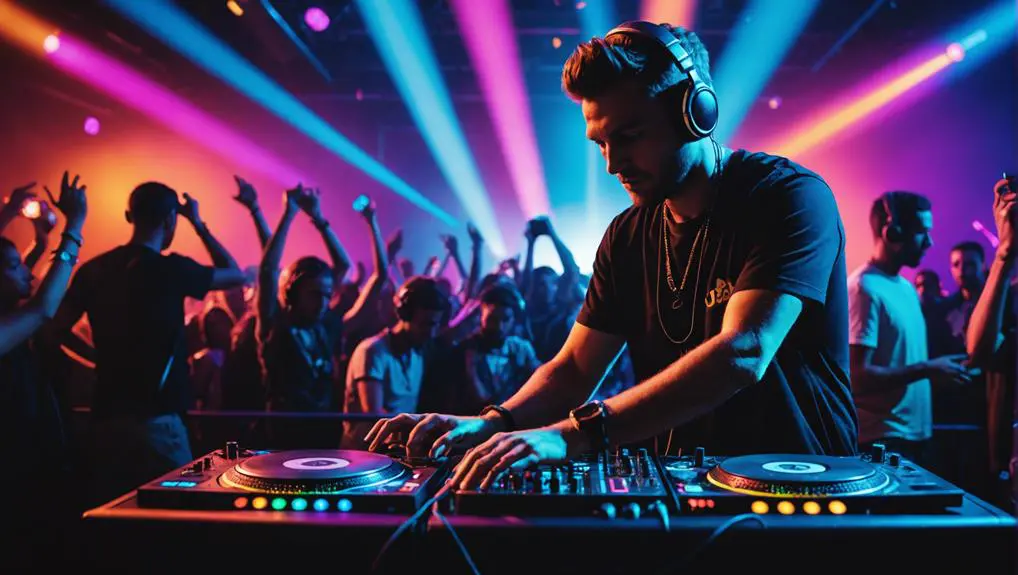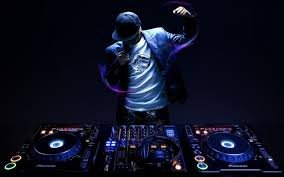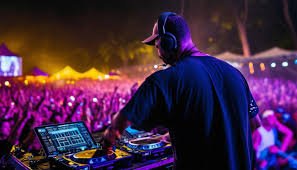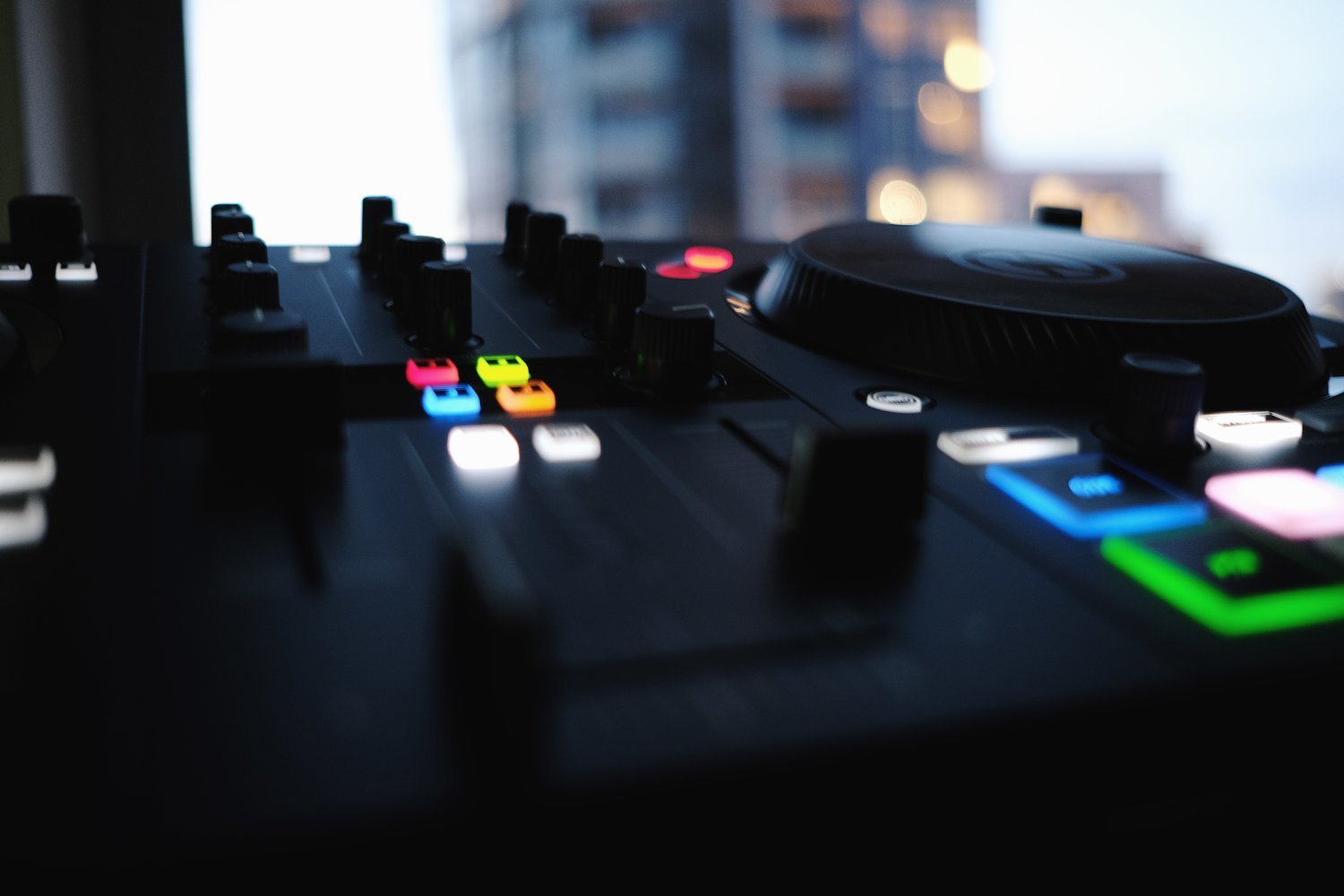In the highly competitive world of DJing, creating a strong and recognizable identity is key to standing out. Whether you’re just starting or looking to redefine your brand, your DJ identity is a crucial element that shapes how you connect with your audience, book gigs, and establish a successful career. From choosing the right name to curating your signature sound, every detail plays a part in crafting your unique presence in the DJ scene. Here’s how to develop your DJ identity and make it memorable.
1. Choosing the Right DJ Name
The first step in creating your DJ identity is selecting a name that reflects who you are as an artist. Your DJ name is how your audience will recognize you, so it needs to be catchy, memorable, and aligned with the type of music you play and the image you want to project.
- Keep It Simple: Choose a name that’s easy to pronounce and spell. Avoid overly complex names that might confuse potential fans or promoters. A simple, catchy name is more likely to stick in people’s minds.
- Reflect Your Style: Your DJ name should reflect your musical style, personality, or image. If you’re into deep house, for example, you might want a name that gives off a cool, laid-back vibe. If you play high-energy techno, a name that feels edgy or bold may be more fitting.
- Consider Longevity: Your DJ name should grow with you. Pick something that will still work as your career progresses and doesn’t limit your artistic evolution. Avoid names that might only suit a specific phase or genre of music.
- Check for Uniqueness: Before settling on a name, do some research to ensure it’s not already taken or too similar to another DJ’s name. You want to stand out, not blend in with other artists.
2. Defining Your Musical Sound
Your sound is one of the most defining elements of your DJ identity. The genres, styles, and influences you incorporate into your sets shape how audiences perceive you. Establishing your sound allows you to carve out a niche and build a loyal following.
- Explore Different Genres: If you’re still figuring out your sound, take the time to explore different genres and subgenres of music. Try blending different styles to see what feels authentic to you. Over time, you’ll find what resonates with your taste and what excites your audience.
- Stay Consistent: While it’s important to experiment, consistency is key in developing your DJ identity. Stick with a core sound or genre that defines your sets and helps build recognition. This creates a sense of consistency and reliability for fans who want to know what to expect when they come to see you perform.
- Evolution and Adaptation: Don’t be afraid to evolve your sound as your career grows. Music trends change, and so will your personal preferences. However, maintain a sense of continuity so that fans who follow you can still connect with the essence of your style.
- Signature Tracks and Remixes: Producing your own tracks, remixes, or edits can help solidify your identity. Your original work becomes an integral part of your DJ persona and allows fans to connect with your creativity beyond just playing other people’s music.
3. Building Your Image and Branding
Your image is how the world perceives you, and it’s just as important as your musical sound. How you present yourself visually—through your logo, online presence, and live performances—affects your overall identity as a DJ.

- Create a Logo: A strong logo is essential for brand recognition. It should be clean, unique, and easily recognizable. Consider working with a designer to create a logo that embodies your style, whether it’s bold and modern or minimalistic and retro.
- Visuals and Aesthetic: Your aesthetic includes everything from your logo to the colors and fonts you use in promotional materials. It should align with your sound and personality. For example, if you play dark, industrial techno, your visuals might reflect that mood with minimalist, monochrome designs.
- Social Media Presence: In today’s digital age, social media is a powerful tool for building your DJ identity. Platforms like Instagram, Facebook, and Twitter allow you to showcase your personality, share your music, and connect with fans. Use these platforms consistently and authentically to share content that reflects who you are as an artist.
- Stage Presence and Live Performances: How you present yourself on stage is an extension of your identity. Whether you’re known for your intense energy or calm and collected demeanor, your live performance should reflect your brand. Your stage presence, fashion choices, and interaction with the crowd all contribute to your overall image.
4. Developing Your DJ Persona
Your DJ persona is how you behave, interact with fans, and present yourself to the world. It’s the personality behind the music that people connect with on a deeper level. Developing a strong DJ persona helps humanize your brand and creates a stronger connection with your audience.
- Authenticity: The key to building a solid DJ persona is authenticity. Don’t try to be something you’re not just to fit into a particular scene or genre. Fans are drawn to DJs who are genuine and true to themselves, so stay true to your values and your vision as an artist.
- Engagement with Fans: Interacting with your fans—whether through social media, live sets, or during shows—helps build a loyal following. Show your audience that you appreciate their support, and let your personality shine through in your interactions. Engaging with your fans makes them feel more connected to you and your journey.
- Storytelling: One way to build a strong DJ persona is to share your story. Whether it’s how you got into DJing, the challenges you’ve faced, or your musical influences, letting your audience into your world helps create a narrative that they can connect with. People love following the journey of artists, and a good story makes your brand more relatable.
5. Building Your Network and Gaining Exposure
Once you’ve developed your DJ name, sound, image, and persona, it’s time to get your name out there and start building a network. Networking with other DJs, promoters, and event organizers is crucial for getting gigs and growing your presence in the scene.
- Collaborate with Other Artists: Building relationships with other DJs and producers is essential for expanding your reach. Collaborating on tracks, mixes, or even live performances exposes you to new audiences and helps you build a reputation within the community.
- Play Local Gigs: Start by playing smaller, local events to gain experience and exposure. Whether it’s a bar, club, or house party, these smaller gigs can help you hone your skills and start building your fan base. The more you perform, the more people will recognize your name and sound.
- Promote Your Music: Share your mixes, tracks, and sets online to increase your exposure. Uploading your music to platforms like SoundCloud, Mixcloud, or Bandcamp allows people to discover your sound. Consistently promoting your music will help grow your fan base and attract more attention from promoters and venues.
6. Stay True to Your Vision
The most important aspect of developing your DJ identity is to stay true to your vision. As you navigate your career, you’ll face many opportunities and challenges, but maintaining consistency and authenticity will set you apart from others. Focus on building a sound and image that reflects your passion and vision, and trust that your uniqueness will resonate with the right audience.
Conclusion
Developing your DJ identity is a journey that requires time, creativity, and a deep understanding of your sound and image. From choosing the right name to defining your musical style, every step plays a vital role in shaping how you present yourself as an artist. By staying authentic, building your brand, and connecting with your audience, you’ll be well on your way to establishing a strong and recognizable DJ identity that resonates with fans and leaves a lasting impact in the music world.











